Sample Pages Preview
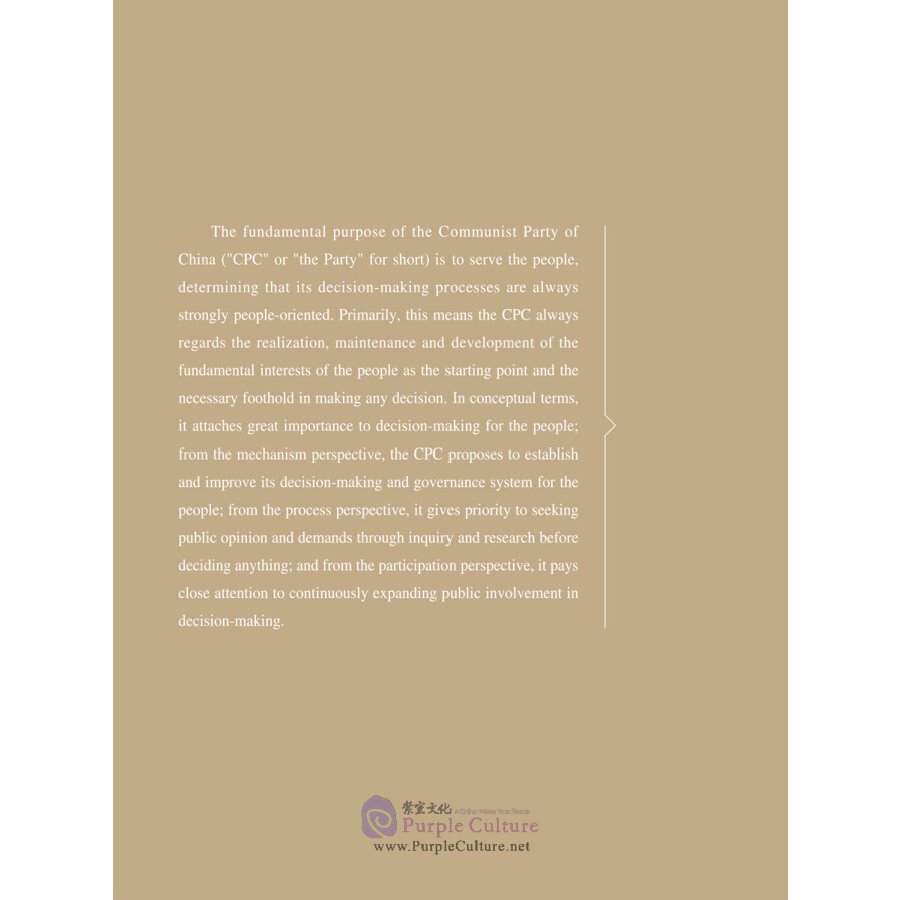
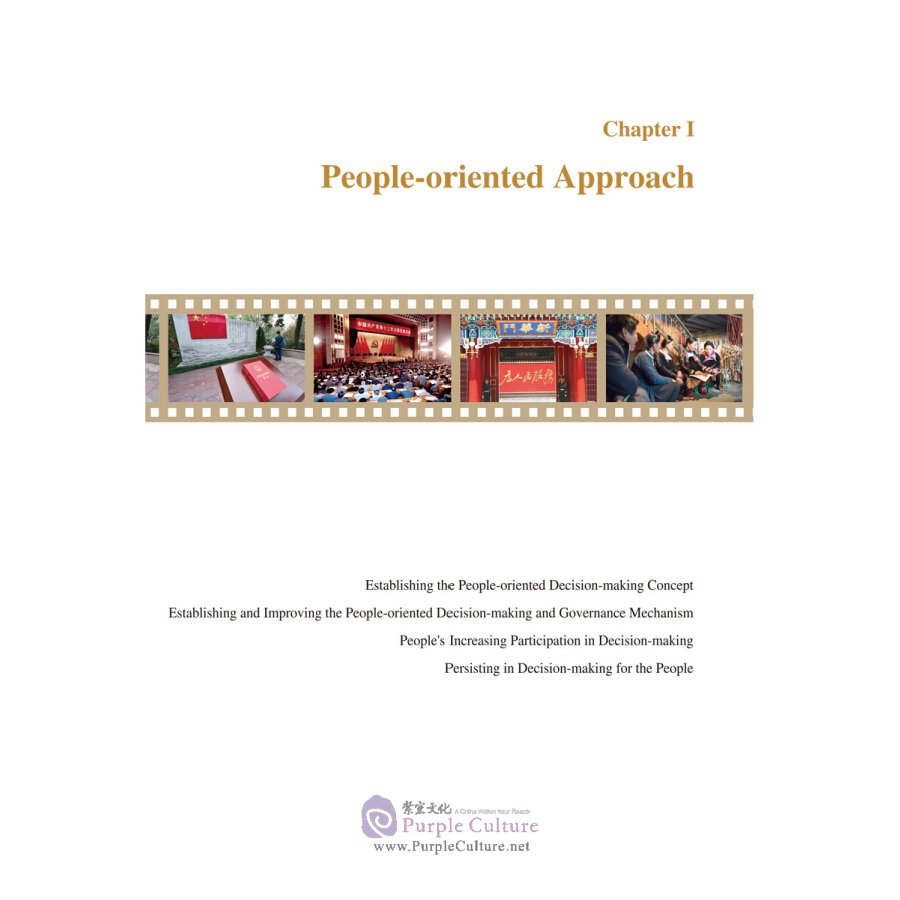
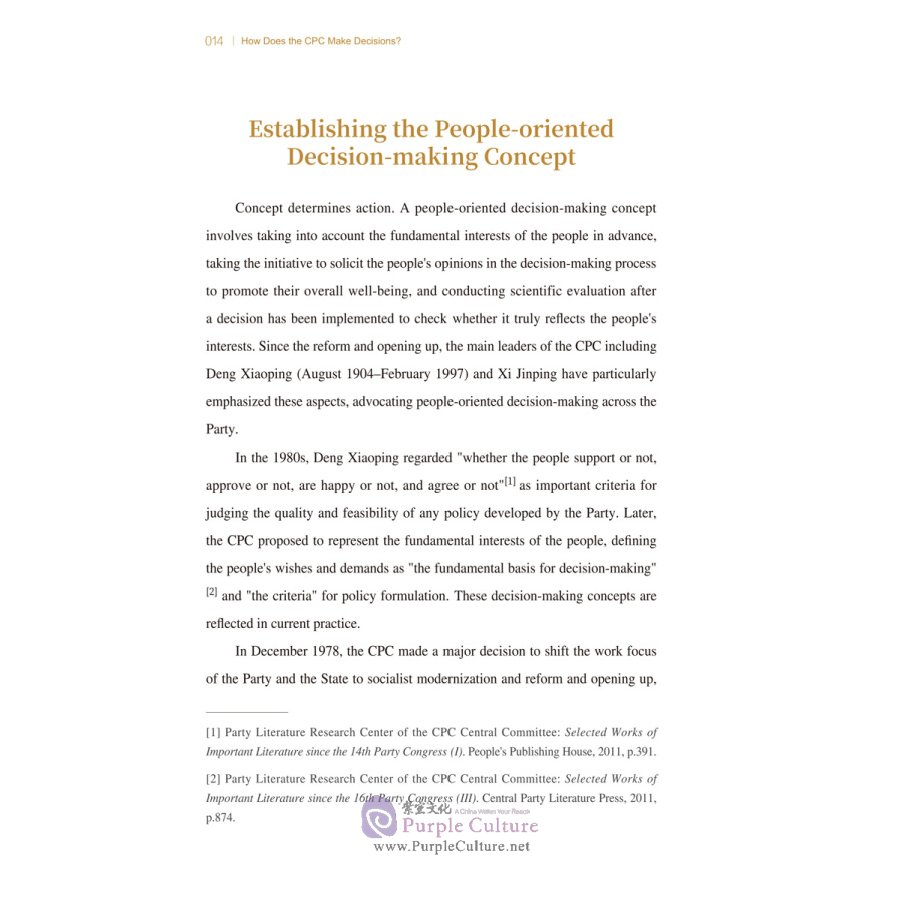
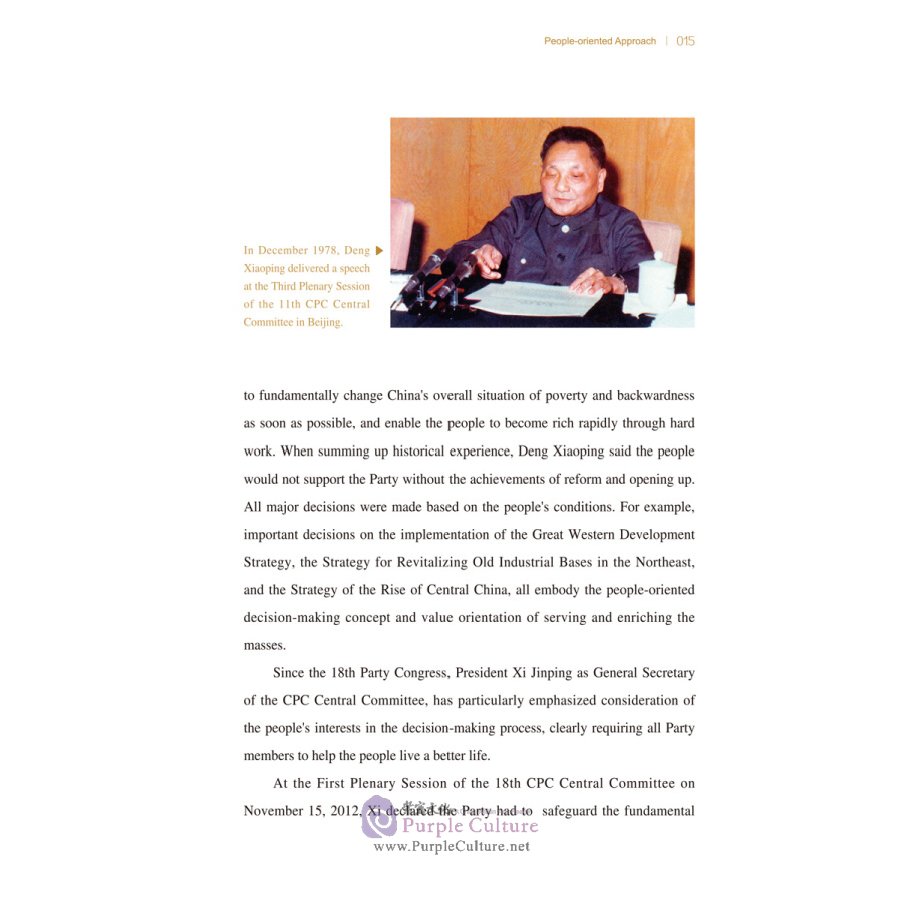
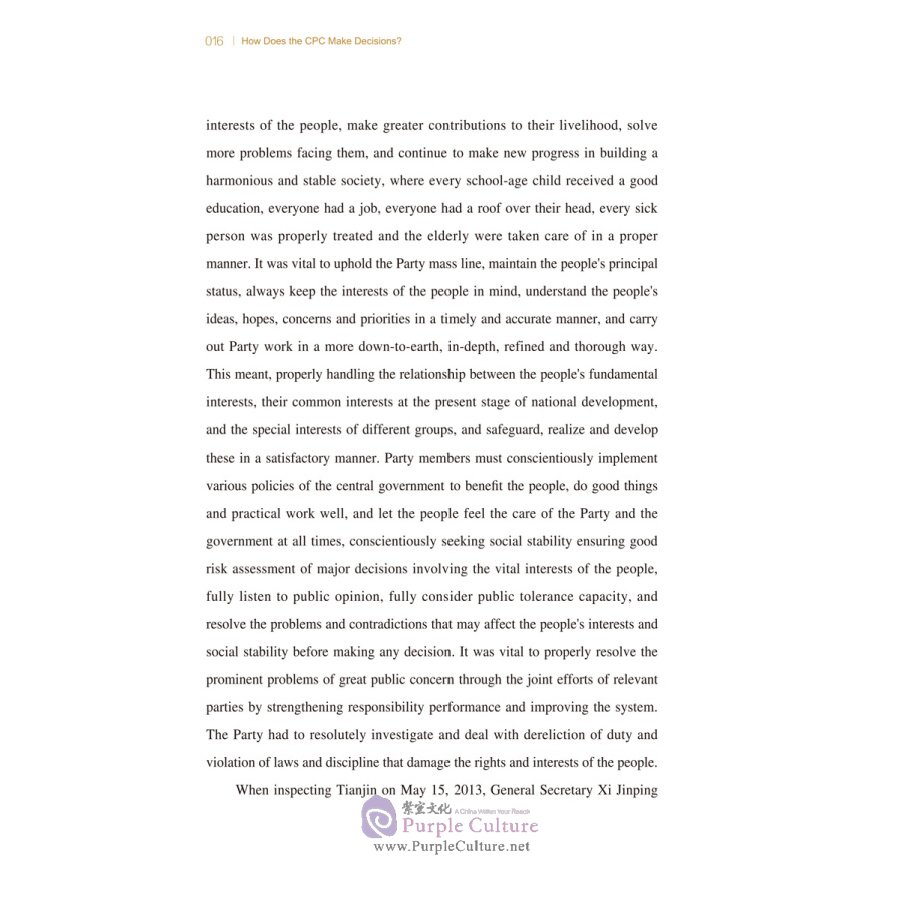 Preface
Preface
Foreword
The Communist Party of China (CPC), founded in 1921, has been governing the People’s Republic of China (PRC) for 70. In late 1978, the CPC intiated the reform and opening-up program and has since led the Chinese people to work diligently with a pioneering spirit to create miracles over which the world has marveled. To understand the rise of China that is rooted in a rich cultural legacy, it is essential to understand the CPC, which has more than 89 million members and over 4.5 million Party organizations at different levels. When you talk with people from different countries, they may have different opinions about the Party, yet all of them may show their approval of China's earthshaking economic and social development. What may be lacking is a clear understanding that China's success hinges on the progress made by the CPC.
Today, foreign readers may find that there are still many mysteries about the CPC, especially in regard to the following:
First, amid hundreds of political parties in China existing in the early decades of the 20th Century, how was it possible for the CPC to defeat the powerful Kuomintang and become the sole ruling Party of China?
Second, the CPC once made some unfortunate detours, but why can it still gain support from the Chinese people, and lead them to create outstanding achievements in economic and social development that, since 2010, has made the country the world’s second-largest economy?
Some scholars think the answers lie in the CPC’s focused pursuit, strict discipline, well-developed organizations, and emphasis on economic development and the effort to improve the living standards of the Chinese people. Some identify the CPC's adaptability to withstand external pressures; there are also scholars holding negative views on the CPC who began to use the word "flexibility" to describe its efforts to address challenges. David Shambaugh, an American authority on China, for example, says the CPC is good at responding to changing situations.
The statements above are all correct to some extent, but they are far from reaching the core of the situation. This author believes the key to its success is that the CPC, during its governance of the country, has formed a set of structures, systems and mechanisms for decision-making within the context of the development of the Party, the nation and the people.
To look back is to better understand where we are and how to move toward. By reviewing the evolution of the CPC's decision-making processes during the past 100 years, especially in the past 40 years of reform and opening up, this book seeks to present a "mental map" of the CPC's effective decision-making and help readers to understand the distinctive features and main ideas of the same.
First, the CPC is committed to a people-centered approach and to the best interests of the Chinese people when making decisions. Its success is related to its high regard and active response to issues most affecting and worrying the people. As CPC General Secretary Xi Jinping has said, the aspirations of the people to live a better life must always be the focus of the efforts of all Party members, requiring them to put the people first.
Second, the CPC emphasizes consultation, and seeks opinions for major decisions from all sides, especially through the people's congress system at various levels, the political consultative conference and CPC congress, enhancing democratic decision-making. The CPC encourages consultation for the people and with the people, before proceeding to make and implement major decisions. It is necessary for someone to take lead in a consultation, and in this case, it is the CPC.
Third, the CPC's decision-making is a process of interaction, involving both vigorous top-down promotion and active bottom-up appeals. Since the reform and opening-up began, the CPC has been gathering wisdom from the masses and inserting them into national policies. Meanwhile, it also carries out top-level design in due course to promote the reform comprehensively.
Fourth, the CPC never rushes in making any decision, but first establishes pilot programs that can be expanded after gaining more experience, this ensuring a gradual progress. Decision-making for a major country can never be too quick, too slow, too far left or too far right; otherwise, problems will arise. Taking the development of pilot free trade zones as an example, a trial was first made in Shanghai, and then replicated in Guangzhou and other cities after gaining valuable experience.
Fifth, the CPC undertakes to make decisions, especially those of high-level, that are technically correct. Before making a decision, it solicits opinions extensively, allowing experts to participate in screening and argumentation to avoid subjective judgment. Before making major decisions, the Party always conducts investigations and studies in all aspects to understand the real situation, embodying the spirit of scientific decision-making.
Sixth, the CPC adheres to law-based decision-making, developing regulations for decision-making, upholding democratic centralism, and establishing the principle of accountability and a corrective mechanism. CPC General Secretary Xi Jinping has always emphasized lifelong accountability for decision-making, like a sword of Damocles hanging over the head of the related official.
Seventh, the CPC requires concrete actions for each and every decision. No matter how good the decision is, nothing will happen without proper execution. It attaches great importance to implementation. CPC cadres at all levels are well aware of the importance of implementing the decisions of the CPC Central Committee. Under such pressure, to correctly put decisions into action has become the top priority for Party members at the primary level.
A political party's capability and the effectiveness of decision-making is critical to not only the life of that party, but also the future of its country. The rise and fall of any party is attributed to not only the institutional mechanisms of a particular country, but also decision-making ability. In some countries, the ruling party lacks foresight and visionary leaders, and often makes wrong decisions, causing national decline. Mao Zedong, Party founder, regarded policies and strategies as the lifeblood of the CPC. As the ruling party of China, the CPC is good at drawing on past experiences, follows rules adapting to different situations, so as to develop a great decision-making capability. The CPC broke the so-called "law of politics" many times when no one believed it could succeed. Led by the CPC, China has created unprecedented miracles and is shifting from a large country to a strong country.
The CPC has had a stable leadership core for most of the time, able to make decisions efficiently. This is one of the major advantages of its decision-making system. According to Professor Wang Shaoguang, “this is very important against the backdrop that many countries are inevitably trapped in a situation where no decision can be made”, because “there are too many players with veto rights”. In October 2016, the 6th Plenary Session of the 18th CPC Central Committee defined the core position of General Secretary Xi Jinping in the CPC Central Committee and the Party. In October 2017, the 19th CPC National Congress declared that socialism with Chinese characteristics had entered a new era, and included Xi Jinping Thought on Socialism with Chinese Characteristics for a New Era as the Party’s guiding ideology. These major moves further facilitate the decision-making of the CPC.
China has a fine traditional culture nurtured over more than 5,000 years. To understand China, you must understand its ruling party, the CPC. If you don't understand the CPC, you can't understand China. And to understand the CPC, you must understand how it makes decisions. It should be pointed out that the CPC's decision-making mentioned in this book mainly refers to the high-level decision-making or that of the CPC Central Committee, and does not involve that existing at the primary-level. Because the approaches of the two are quite different: the latter is often influenced by the former, and may encounter uncertainties.
It is necessary to point out that the CPC's decision-making is not perfect. There are mistakes, and the decision-making system needs to be improved with the passage of time. Overall, however, the CPC's efficient and centralized decision-making is no doubt a key to Chinese miracles, Chinese achievements and Chinese wisdom attracting the attention of the entire world.




